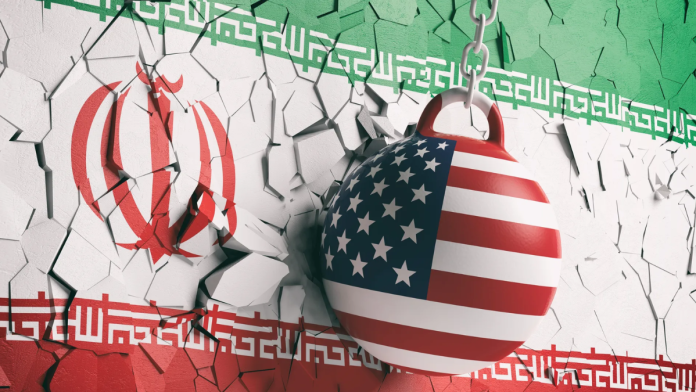The United States has announced a fresh wave of sanctions against 32 entities and individuals from several countries, including India, China, Hong Kong, the United Arab Emirates, Turkiye, and Iran. The U.S. said these people and companies were part of networks helping Iran’s ballistic missile and unmanned aerial vehicle (UAV) production.
The announcement was made on Wednesday, November 12, 2025. The U.S. State Department said this action is part of President Donald Trump’s ongoing efforts to counter Iran’s growing missile and weapons development programmes. Officials stated that Iran’s increasing work on ballistic missiles and drones poses a serious risk to regional and international peace.
The U.S. government explained that these sanctions aim to block Iran’s access to the materials, funding, and technology it needs to advance its missile and drone capabilities. The action also aligns with the reimposition of United Nations sanctions and restrictive measures on Iran after the country’s “significant non-performance” of its nuclear commitment.
India-based Farmlane linked to UAE firm in procurement network
Among the 32 sanctioned entities, one company from India has drawn attention. The U.S. Treasury Department linked Farmlane Private Limited (Farmlane), based in India, to a United Arab Emirates-based firm named Marco Klinge (Klinge).
According to the Treasury Department, Marco Klinge allegedly facilitated the procurement of key materials, including sodium chlorate and sodium perchlorate, which can be used in missile propellants and other weapons-related processes. The U.S. stated that Farmlane Private Limited worked in coordination with this UAE-based firm to supply such materials to Iran’s ballistic missile programme.
By identifying Farmlane and Klinge, the U.S. aims to cut off indirect supply routes that Iran has been using to obtain sensitive equipment and chemicals through third countries. Washington said it will continue targeting any entity that helps Iran’s military-related procurement, regardless of where it operates.
Tehran’s billion-dollar lifeline — U.S. exposes Iran’s secret cash pipeline to Hezbollah
Washington’s policy to increase pressure on Iran
The sanctions are part of what U.S. officials described as “maximum pressure” on Iran to stop its nuclear and weapons activities. The U.S. Under Secretary of the Treasury for Terrorism and Financial Intelligence, John K. Hurley, said that Iran has been using international financial systems to launder money and buy materials for its nuclear and missile programmes.
“At the direction of President Trump, we are putting maximum pressure on Iran to end its nuclear threat,” Hurley said. He added that the United States expects other countries to enforce the UN snapback sanctions to prevent Iran from accessing the global financial system.
The State Department said the sanctions demonstrate Washington’s determination to stop Iran from developing and exporting weapons that could destabilise the Middle East. It added that the U.S. will “use all available means” to expose and disrupt Iran’s procurement of technology and materials used for its ballistic missile and UAV programmes.
U.S. cracks down on Iranian oil empire — Hossein Shamkhani accused of using Dubai to dodge sanctions
Wider global implications of the sanctions
The U.S. decision to include firms from several countries — including India, China, and the UAE — shows how Iran’s weapons supply networks span across borders. By sanctioning these entities, Washington is sending a clear message that even indirect support for Iran’s missile or drone programmes will face consequences.
Officials said the move is meant not only to target Iran but also to deter companies and individuals worldwide from aiding its weapons development. The sanctions are expected to affect the operations of the listed firms, especially those involved in cross-border trade and finance.
The U.S. believes that restricting these networks will make it harder for Iran to get materials vital to its missile programme. The State Department said it remains committed to exposing and dismantling such procurement networks to protect international security and regional stability.
With these sanctions, the U.S. has reaffirmed its stance that it will not tolerate any activities supporting Iran’s missile or drone development, marking one of its strongest coordinated actions yet.


